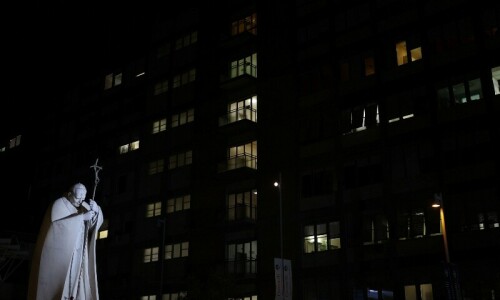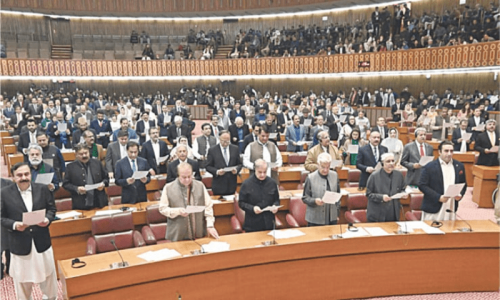In early history, communities developed their own customs and practices to maintain law and order. Each individual in the community would observe these rules and if anybody violated them, he would be punished by expulsion from the community. Since nobody wanted to lose the help and support of the community by showing any deviation, they preferred to follow the prescribed communal way of life.
With the emergence of state, a legal system was gradually established to maintain order and discipline. As socio-economic class difference increased in the society, the ruling classes were mostly exempted from punishment for committing crimes, while common people were punished severely even for minor offences. Rulers were not only regarded above the law but the ruler’s command was considered the law for the common people.
Around 1700BC, Hammurabi, the ruler of Babylonia established a legal system known as the Code of Hammurabi, covering several social, political and economic aspects of life. His laws were based on the principle of “an eye for an eye, a tooth for a tooth”. Since it was supposedly bestowed on him by Mardouk, an ancient god, the law was considered divine and unchangeable and Hammurabi was not held above the law. He carved his laws on stone tablets placed in the market where people could read them and become aware of them.
Another legal system emerged in the Greek city state of Athens in 624BC. Draco introduced a code of laws proposing severe punishment even for minor crime. Despite the severity, crime continued in the society and the term ‘Draconian’ was coined. It is used to describe harsh measures imposed by an autocratic government to crush any resistance against their rule.
The next lawmaker to emerge was Solon (d 594BC). Introducing legal reforms, he established the right of trial by a jury and the right of the accused to hire an advocate. Moreover, the judgment of court could now be challenged, These laws were inscribed on stone tablets and panels of wood and placed in the marketplace so that people could learn about their rights.
The legal system of the Roman Empire was comprehensive and covered nearly all social, political and commercial conflicts prevalent at the time; based on which the judgment was pronounced while the accused had full rights to defend himself. It created a class of lawyers who studied the legal system and appeared at the court to plead cases. Cicero, one of the famous lawyers used his outstanding rhetorical style to present legal arguments in court. Private property was fully protected by these laws, but being a patriarchal society, women were considered subordinate to men and denied full rights.
The Roman laws continued during the middle ages in Europe, while some of them were adopted by the modern European states.
In 1086, William evolved the legal system of England by ordering the compilation of the Domesday Book, a survey listing all the landholders in England along with their holdings. His main motive was to subordinate the feudal lord. Afterwards, he appointed court officers to decide the cases of landed properties and their judgments which became known as the common laws. An important change in English legal system occurred when in 1215, when King John was forced to sign the Magna Carta, which introduced trial by jury and protection of private property. The power of the king was further reduced in the Glorious Revolution of 1688 and he was no longer allowed to interfere in court cases.
The French Revolution radically changed the legal system not only in France, but also in other European countries. The revolutions of 1830 and 1848 introduced constitutional monarchy which brought the ruling classes under the ambit of law. The constitution granted fundamental rights to all citizens while privileges of the elite classes came to an end. It established the rule of law for all. To this day in Europe and USA, all citizens — whether poor or rich — are equal in the eyes of the law.
When the British acquired political power in India, they introduced reforms in the existing legal system. The result was that a new class of lawyers emerged to plead cases in court. However, the colonial rulers enjoyed some exemptions and privileges. For instance, no European could be tried by an Indian judge. The British government also imposed certain Draconian laws which violated the fundamental and human rights of people. After the World War 1, the Rowlatt Act was passed in 1919, which allowed certain political cases to be tried without juries and permitted internment of suspects without trial. The objective was to replace the repressive provisions of the wartime Defence of India Act (1915) by a permanent law.
After Independence, we inherited the colonial legal system. In Pakistan, the feudal lords, tribal leaders, bureaucrats and military officers, being powerful and influential, consider themselves to be above the law and have no qualms about violating it. As a result, our legal system has failed to provide justice to the common people.
Due to this discrimination, nobody has any respect for law. With the rule of law being absent, the society becomes chaotic and disorderly and loses dignity and respect.















































